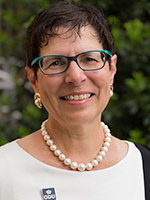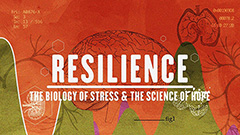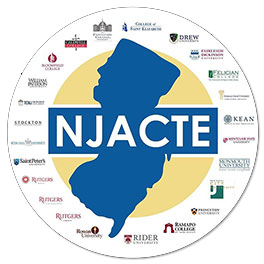20 Jun2017
By Shawn Karim
The latest monthly episode of Education Talk Radio spotlighted the AACTE Holmes Program and other efforts to increase the diversity of the U.S. teaching workforce. In the June 14 show, host Larry Jacobs was joined by Dean Monika Shealey of Rowan University (NJ), Student Services Director Jarren Jeffery of Mount Vernon High School (Fairfax County, VA), current Holmes Scholars Janelle Alexander (Rowan University) and Dana Dunwoody (Boston University, MA), recent Holmes alumnus Ahmed Fahad (University of Cincinnati, OH), and AACTE’s Tim Finklea.
Schools across the country have more diverse student populations than ever, yet the teaching workforce is still predominantly White and female. The AACTE Holmes Program, which for decades has supported students from historically underrepresented backgrounds pursuing doctorates in education, was expanded 3 years ago to include master’s, undergraduate, and even high school students in an effort to provide deeper support in the pipeline of future educators.
06 Jun2017
By Shawn Karim
In the latest monthly episode of Education Talk Radio spotlighting AACTE member institutions’ work, the online radio show featured the work of three educator preparation programs to combat teacher shortages. Host Larry Jacobs was joined for the May 17 show by AACTE member deans Kim Metcalf from the University of Nevada-Las Vegas (UNLV), Patricia McHatton from the University of Texas-Rio Grande Valley (UTRGV), and Marcia Burrell from the State University of New York-Oswego (SUNY-Oswego) as well as Rod Lucero from AACTE.
Teacher shortages are plaguing many states and districts around the country, particularly in high-need fields and low-income schools. In addition to school-centered problems such as high teacher turnover and persistent gaps in the diversity of students and their teachers, preparation programs have experienced enrollment drops that further heighten the productivity challenge. “It has to do with, quite frankly, money,” Lucero said, noting that college students are leery of investing in an expensive degree for a career that lacks sufficient salary to repay their student loans, and some teachers start out earning below the poverty line.
16 May2017
By Jane S. Bray

This op-ed was published May 14 in the Virginian-Pilot. The views expressed in this post do not necessarily reflect the views of AACTE.
At a recent alumni award ceremony for Old Dominion University’s Darden College of Education, one of the honorees, author Rodney Sidney II, introduced the guests he had invited. Among them was his fourth-grade special education teacher. The moment was tremendously poignant, as he spoke of the support and encouragement he had received from her. Even more touching was how Sidney described her belief in him and her never-ending guidance.
24 Apr2017
By Rebecca Gutierrez
Education Talk Radio, an online radio show airing PK-12 and higher education discussions for education professionals, hosted AACTE members last week for the first of several monthly segments that will highlight aspects of members’ teacher preparation work.
Diane Fogarty from Loyola Marymount University (CA), John Henning from Monmouth University (NJ), John Jacobson from Ball State University (IN), and AACTE’s Rod Lucero joined Larry Jacobs, host of Education Talk Radio, for the April 17 show.
The discussion centered on clinical practice models employed by these three institutions to provide teacher candidates not only strong classroom experience but also an understanding of the context of students’ local communities.
10 Apr2017
By Robert W. Smith
This opinion article originally appeared in The News & Observer. The views expressed in this post do not necessarily reflect the views of AACTE.
In pursuing testing and accountability as the route to school improvement, North Carolina has overlooked the benefits of collaboration and innovation. The following two examples of innovation illustrate both the challenge and the opportunity.
During the recession, when funds were cut for after-school transportation, a high school had to change its after-school tutoring program. It adopted a new program, Smart Lunch, which provided additional time for tutoring to occur in the middle of the day. This change brought several advantages: Tutoring was no longer an add-on at the end of the day; it did not have to compete with after-school programs or students who had jobs or family responsibilities; and it was not dependent on transportation.
06 Apr2017
By AACTE
AACTE issued the following media release today:

(April 6, 2017, Washington, D.C.) – As Dr. Sharon P. Robinson nears the end of her 12-year tenure as president and chief executive officer of the American Association of Colleges for Teacher Education (AACTE), the organization celebrates her leadership and contributions to the field.
Robinson, who plans to retire later this year, has led AACTE in advocating and building capacity for high-quality educator preparation programs across the nation to serve diverse learners. She has successfully directed efforts and forged partnerships to professionalize the field of teaching, raise educator quality, and work with legislators to implement policies that advance research-driven innovations and equity for all students.
21 Feb2017
By Zachary VanHouten
Two new advocacy guides are now available for download in AACTE’s Advocacy Center. These handy references help you put Twitter to use as a strategic advocacy tool and develop effective relationships with the press.
These guides, available exclusively to AACTE members, join four others we’ve developed to boost your advocacy prowess. Here’s the full list of guides currently available through the federal and state pages of the Advocacy Center:
27 Jan2017
By Jerrica Thurman
Do you follow AACTE on Twitter? Do you tag @AACTE in Tweets about your program’s exciting news so we can retweet it? We want to engage with you on social media – and that’s why we invite you to join us on Twitter during the 2017 Annual Meeting. By using the hashtag #AACTE17, you can spread the word about dynamic presenters or interesting research, contribute to the event’s narrative, and even win a prize!
As an incentive for attendees to connect with AACTE on Twitter, we are running a contest for registrants who tweet a group selfie tagged with #AACTE17 during the Annual Meeting. Between March 1 at 7:00 a.m. EST and ends March 3 at 11:59 p.m. EST, just take a photo of yourself with at least one other attendee at the Annual Meeting and post the image to Twitter using #AACTE17.
28 Nov2016
By Sandra M. Chafouleas
The views expressed in this post do not necessarily reflect the views of AACTE.

In the 90s, I worked as a school psychologist and then as an administrator in urban and rural settings. I used my graduate training in behavior management to help students overcome challenges and meet classroom expectations.
24 Oct2016
By Sharon Robinson
The New York Times editorial “Help Teachers Before They Get to Class” (October 15) repeats outdated canards about teacher preparation that are as misguided as the new federal regulations celebrated in the editorial. Far from resisting higher expectations, teachers colleges are driving them.
Higher education institutions and states have raised program entry requirements in recent years, and the academic qualifications of admitted students have increased apace. By referencing an outdated and widely discredited report, the editorial misses this fact, reflected in publicly available federal datasets: today’s undergraduates preparing to be teachers have an average GPA of 3.2 on college work required for admission to the program.
21 Sep2016
By Ana Maria Schuhmann

Thanks to an AACTE State Chapter Support Grant, the New Jersey Association of Colleges for Teacher Education (NJACTE) recently completed a statewide advocacy campaign to debunk myths about teacher preparation and teacher quality.
In spring 2015, NJACTE submitted a successful proposal to AACTE for funds to expand the capacity, leadership, and relationship with the PK–12 community and the state Department of Education by collaborating on strategies to debunk myths about teacher preparation and teacher quality.
12 Sep2016
By Kristin McCabe
Winding its way from D.C. to Louisiana, the U.S. Department of Education’s 2016 “Opportunity Across America” bus tour kicks off today and runs through Friday. If you’ll be nearby any of the tour stops, you might consider taking the opportunity to connect with national and local officials as an education leader in your community.
14 Jun2016
By Denarius Stinson
AACTE’s 2016 Day on the Hill welcomed more than 120 member participants to the nation’s capital last week, building their capacity for political advocacy and delivering them to Capitol Hill to present their messages personally to member of Congress and their staff.
The event kicked off June 7 at the Crystal Gateway Marriott in Arlington, Virginia. Attendees enjoyed a full-day orientation, expanded from prior years to more fully prepare them to articulate their positions, cultivate positive relationships with elected officials and the media, and partner with other education advocates.
AACTE President/CEO Sharon Robinson welcomed participants, saying she was excited to convene members for such an important cause. “We are taking on some of our greatest challenges,” she said. AACTE Board of Directors Chair Jane Bray and Committee on Government Relations and Advocacy Chair Joen Larson joined in offering greetings.
31 May2016
By Aaron Goldstein
Ed Prep Matters is pleased to bring you this special feature on state policy and AACTE state chapter activity. For a summary of state activities from January through April 2016, see this article.
Overview of Policy Activity
In May, state policy activities have begun to slow, as many state legislatures have adjourned their 2016 legislative sessions. This month, only 15 state legislatures have been in regular session, while four states have been in a special session. Six education-related bills were introduced this month in two states, New York and North Carolina. These bills covered issues such as offering loan forgiveness for teachers, supporting reimbursement for National Board certification, authorizing alternative routes to the teaching profession, and amending admission requirements for graduate-level preparation programs for teachers and school leaders.
23 May2016
By JTE Insider
Have you seen the JTE Insider blog managed by the Journal of Teacher Education editorial team? Check out the latest entry below.
In the editorial of the May/June 2016 issue of the Journal of Teacher Education, Carter Andrews, Bartell, and Richmond bring awareness to the recent teacher sick-outs in Detroit Public Schools as a way to illustrate the continued resistance to elements that serve to dehumanize the teaching profession. They write:
We are calling attention to the teacher sick-outs in Detroit and the factors leading up to them in these pages, because they represent one of the numerous examples throughout the country of educators’ resistance to the continued de-professionalization of teachers and teaching and the institutional and structural forms of dehumanization that teachers experience regularly. Furthermore, we believe teachers’ professional self-concept is negatively impacted by inequitable working conditions in many high-need schools and communities that are not present in schools that are resource-rich. (p. 170)

















